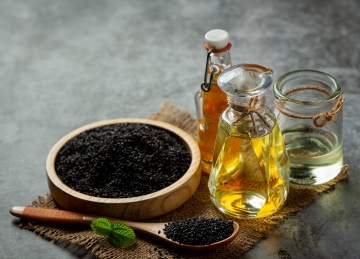Plant-Based Butters in Skincare | Why Ethical Sourcing Matters
Plant-Based Butters for Skin: The Importance of Ethical Sourcing in Skincare
When you open a container of your favourite moisturiser, you probably don't think about how the main ingredients got there. But the truth is that every calming stroke of cream has a backstory - a narrative that generally begins in a forest, meadow, or rural town. And when it comes to plant-based butters such as shea, Sal, mahua, and cocoa substitutes, the story is soon becoming as significant as the outcomes.
The Rise of Plant-Based Butters in Skincare
There's a reason plant-based butters are so prevalent in skincare. They're rich, creamy, and naturally high in emollients, which soften, protect, and moisturise. Natural fats like Sal butter's velvety smoothness, shea's luscious richness, and mowrah's light adaptability not only moisturise but also elevate a product from utilitarian to aspirational. Manufacturers also profit from the fact that they are natural, consumer-made, and popular with the "green beauty" movement. The trick here is that today's consumers are concerned not just with the contents of the jar, but also with how it wound up inside.
Why Ethical Sourcing Isn't Optional Anymore
Ethical sourcing is no longer "nice to have." As conscious beauty grows more popular, purchasers want assurances that their products are not only beneficial for them, but also for the environment and the communities that source the raw ingredients. If plant butters are gathered responsibly, farmers are appropriately compensated, ecosystems are safeguarded, and biodiversity is preserved. Consider this: properly obtained Sal butter not only improves hair masks, but it also provides economic advantages to rural people in India, where the Shorea robusta tree grows. The same goes for shea butter, where fair sourcing promotes women's cooperatives throughout West Africa. In sum, the beauty business cannot be radiant if it extinguishes the brightness of the people and landscapes that provide its products.
Building Trust with Today's Consumer
For brands, using ethically sourced plant butters is more than simply a compliance checkbox; it's a differentiation. Today's shoppers read labels and seek tales. They want to know if their moisturiser promotes forestry or if their hair conditioner boosts the local economy. Telling customers that story "from forest to formula" is an effective way to establish loyalty in a congested market.
A Win-Win for Brands and the Planet
When businesses choose sustainable procurement, they not only attract environmentally conscious customers but also secure their company's future. Sustainable procurement ensures a stable supply of high-quality raw materials while reducing environmental risks associated with overharvesting or exploitation. It's a triple win: better goods for customers, stronger supplier connections, and a smaller environmental imprint. Plant-based butters will always be appreciated for their texture, moisture content, and adaptability. However, in today's beauty industry, how they are manufactured is as important. Companies that prioritise ethical manufacturing are doing more than just producing lotions and balms; they are also fostering trust, transparency, and a future in which responsibility and beauty coexist. So, the next time you're thinking about what you put in your goods, remember that it's not only about what goes in; it's also about where it comes from and who benefits. That is what gives beauty its appeal.




(3wmpg.jpg)

5.jpg)